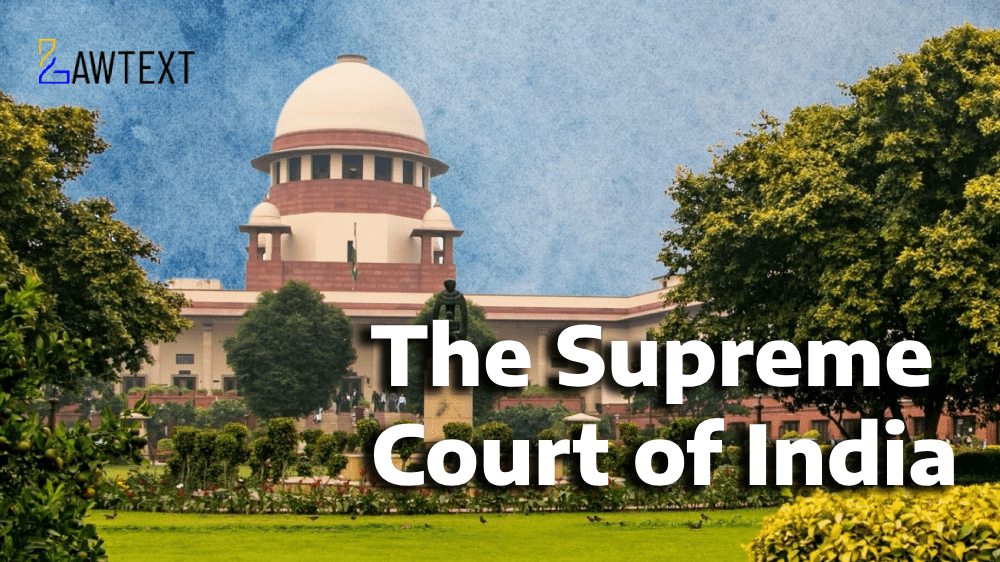CASE NOTE & SUMMARY
1. Background and Assam Accord
The petitioners challenged Section 6A, introduced by the Citizenship (Amendment) Act, 1985, which grants citizenship to migrants from Bangladesh who entered Assam before March 25, 1971, as per the Assam Accord of 1985. The main grounds of challenge included violation of fundamental rights (Articles 6, 7, 14, 29, and 355) and legislative overreach.
2. Legislative Competence under Article 11
- Key Issue: Whether Parliament was competent to legislate Section 6A under Article 11 of the Constitution.
- Court's Analysis: The court held that Article 11 empowers Parliament to regulate citizenship through legislation, including post-independence migration scenarios. Section 6A does not amend Articles 6 and 7, which deal with citizenship at the commencement of the Constitution, as they have a different temporal scope.
3. Challenge under Article 14
- Key Issue: Whether Section 6A violates Article 14 by creating a separate regime for Assam, unlike other states that share a border with Bangladesh.
- Court's Analysis: The court reasoned that Assam faced unique challenges due to heavy migration during and after the partition. Section 6A’s classification based on the Assam Accord is reasonable and constitutionally valid under Article 14.
4. Article 29(1) and Assamese Cultural Identity
- Key Issue: Petitioners argued that the massive influx of migrants diluted the cultural identity of the indigenous Assamese people.
- Court's Finding: Section 6A is not violative of Article 29(1), as it seeks to regularize the citizenship of migrants up to a specific cut-off date, preserving the broader social balance envisioned by the Assam Accord.
5. Article 355 – External Aggression or Internal Disturbance
- Key Issue: Whether the influx of migrants amounts to "external aggression" under Article 355, requiring national protection.
- Court's Finding: The court ruled that migration cannot be considered external aggression in this context. The legislative response through Section 6A addresses internal administrative challenges.
Ratio Decidendi:
- Legislative Competence: Parliament’s power under Article 11 includes post-independence migration laws, and Section 6A operates within this framework without conflicting with Articles 6 and 7.
- Article 14: Section 6A’s classification is constitutionally valid as Assam represents a unique demographic situation that required separate treatment.
- Article 29: The provision does not infringe upon the cultural rights of the Assamese people, balancing between constitutional citizenship and the Assam Accord’s implementation.
Acts and Sections Discussed:
- Constitution of India: Articles 6, 7, 11, 14, 29(1), 355
- Citizenship Act, 1955: Section 6A
- Foreigners Act, 1946: Governing detection and deportation of illegal migrants
- Assam Accord, 1985: Framework for determining citizenship for migrants in Assam
Subjects:
#Citizenship #AssamAccord #Article14 #ConstitutionalLaw #IndianCitizenship #SupremeCourtVerdict
Citation: 2024 LawText (SC) (10) 172
Case Number: Writ Petition (C) No 274 of 2009 With Writ Petition (Civil) No. 916 of 2014 With Writ Petition (Civil) No. 470 of 2018 With Writ Petition (Civil) No. 1047 of 2018 With Writ Petition (Civil) No. 68 of 2016 With Writ Petition (Civil) No. 876 of 2014 With Writ Petition (Civil) No. 449 of 2015 With Writ Petition (Civil) No. 450 of 2015 And With Writ Petition (Civil) No. 562 of 2012
Date of Decision: 2024-10-17
Case Title: IN RE : SECTION 6A OF THE CITIZENSHIP ACT 1955
Before Judge: (J.B. Pardiwala J.)

